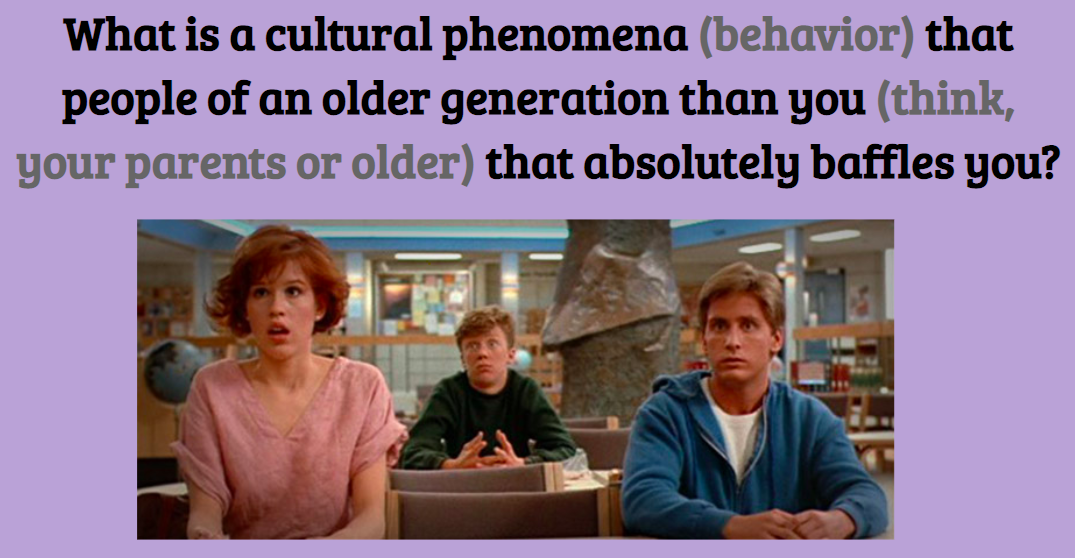Check-in: Quarantine Observations of Parental UnitsTask #1: Small Group Discussion on Research Document Plan or Set-Up.Show/explain how you plan to record your research. Take turns using Screencasting to show the research document you have set up and how you will record your research. Aspects of research that you should be recording:
Task #2: Research and answer your low-level questionsFocus on trying to do some fact-finding to answer your low-level questions. This gives you enough information and time to make some final decisions about what direction you want to go with your research. Keeping in mind the aspects listed above, use your low-level questions to guide the start of your research and start recording basic facts about your issue/topic. Be sure you are also recording details and organizing notes that help answer your low-level questions. Use those questions as a way to organize your notes. As you begin your research, you may find that you want to refine or change your primary/key research question and/or the lens through which you choose to research this issue. This is normal and okay. Just make those changes in your own research document (portfolio) you are creating. Helpful Resources for Research:
Comments are closed.
|
Mrs. Stewart's CourseYou'll find a daily agenda posted here for each day that class meets Archives
May 2020
Categories |

 RSS Feed
RSS Feed